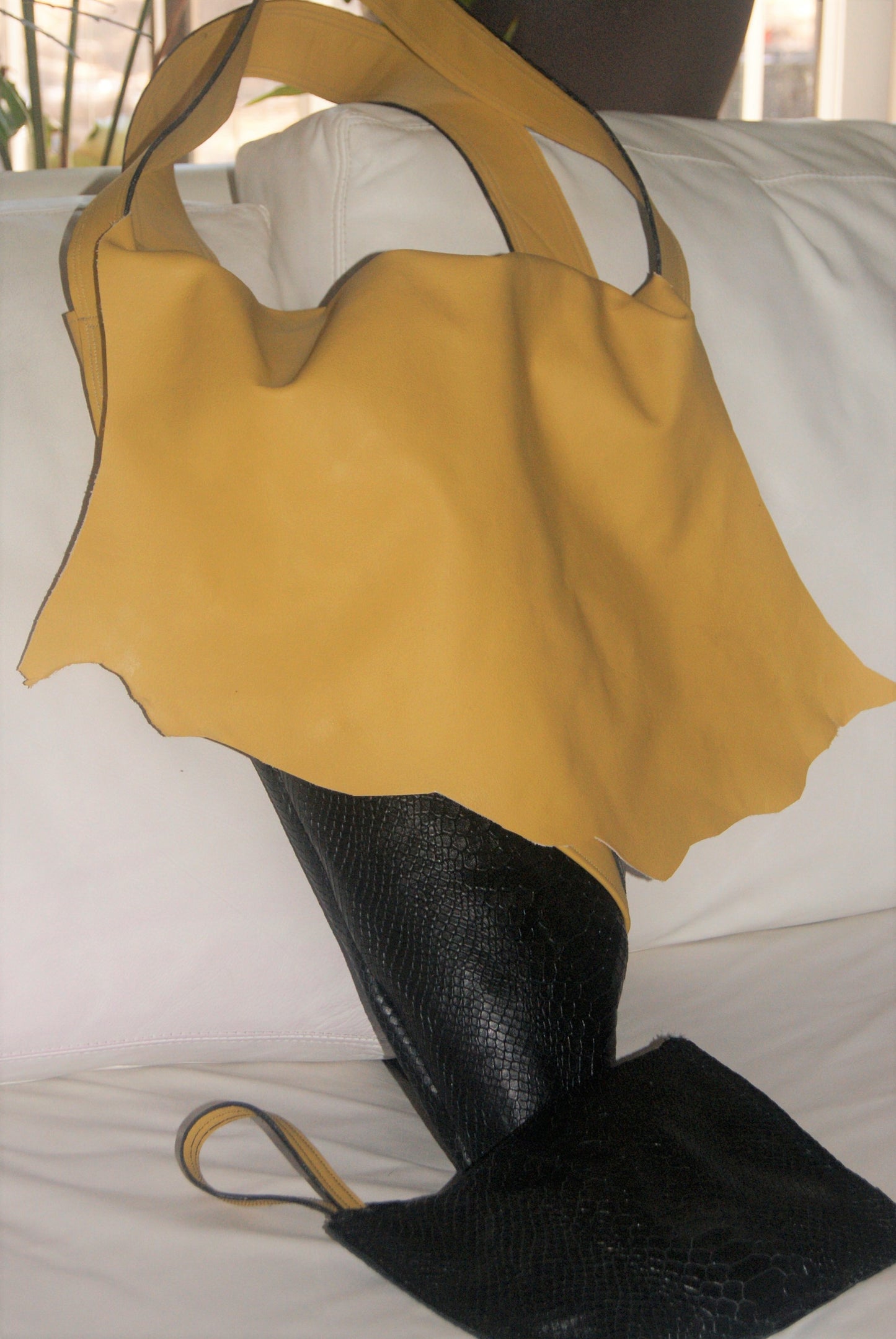Mary Church Terrell -shoulderbag
Mary Church Terrell -shoulderbag
Couldn't load pickup availability
Yellow veg tanned leather coned shaped leather bag. With black alligator base and front pocket located under flap over. The two double straps are used to make a shoulder strap carrier. The bag has a flap over closer and is lined interior on one side. The bonus is a black zippered wallet with matching yellow strap, that can be carried separately . Per your request this bag can be made just for you in the color of your choice.
Mary "Mollie" Eliza Church was born in 1863 in Memphis, Tennessee Her parents were prominent members of the black elite of Memphis Her father accumulated wealth by investing in real estate, and purchased his first property in Memphis in 1866. He made his fortune by buying property after the city was depopulated following the 1878 yellow fever epidemic. He is considered to be the first Black millionaire in the South. Terrell's mother, Louisa Ayres, is believed to be one of the first black women to establish and maintain a hair salon. All in all, Ayres was a successful entrepreneur at a time when most women did not own businesses. Mary attended Antioch College Model School from 1871 to 1874, starting at the age of eight. In 1875, Terrell then went to Oberlin college earning her B.A. in 1884 and her M.A. in 1888.
Terrell began her career in education in 1885, teaching modern languages at Wilberforce University, a historically black college founded collaboratively by the Methodist Church in Ohio and the African Methodist Episcopal Church in the state. She became fluent in French, German, and Italian. In 1895 she was appointed superintendent of the M Street High School, becoming the first woman to hold this post. In 1904, Terrell was invited to speak at the International Congress of Women, held in Berlin, Germany. She was the only black woman at the conference. She received an enthusiastic ovation when she honored the host nation by delivering her address in German. She delivered the speech in French, and concluded with the English version. In 1950 Terrell started what would be a successful fight to integrate eating places in the District of Columbia. In the 1890s the District of Columbia had formalized segregation, as did states in the South. Before then, local integration laws dating to the 1870s had required all eating-place proprietors "to serve any respectable, well-behaved person regardless of color, or face a $1,000 fine and forfeiture of their license." In 1949, Terrell and colleagues Clark F. King, Essie Thompson, and Arthur F. Elmer entered the segregated Thompson Restaurant. When refused service, they promptly filed a lawsuit. They later won the case against restaurant segregation.
After the age of 80, Terrell continued to participate in picket lines, protesting the segregation of restaurants and theaters.
Materials
Materials
Shipping & Returns
Shipping & Returns
Dimensions
Dimensions
Care Instructions
Care Instructions
clean and use leather conditioner .








